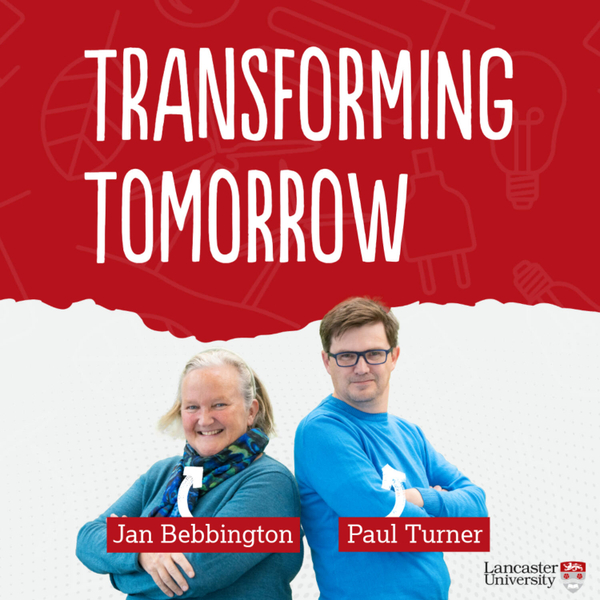
How can businesses have a positive impact on nature? We hear a lot about the negative effects organisations have on the planet, but they can also be a force for good.
By helping to restore nature, firms big or small, local or global, can help themselves and their operations – and maybe all of us. But what are they actually doing, and why can it be so hard for them to tell us?
Dr Tim Lamont, a marine biologist in Lancaster Environment Centre, explains his work on corporate reporting around nature restoration, and how the subject fits in with his expertise on tropical coral reefs and how we look after them.
Discover how humans have damaged the planet, how the current generation is equipped with tools to repair it, and why Jan was described as ‘not a complete idiot’ and how her accounting expertise fits into the picture.
Can Paul’s inherent pessimism be overcome as we discuss the different ecosystem restoration practices from around the world; the importance of involving local people in restoration efforts and of long-term commitment over short-term attitudes; what can be done to drive change; and whether companies are more than just evil, faceless entities?
Plus, a bonus discussion on the size of Cumbria and how it could be used as a term of measurement.
Find out more about Tim and his work here: https://www.lancaster.ac.uk/lec/about-us/people/timothy-lamont
And read his paper co-written with Jan and others here: https://eprints.lancs.ac.uk/id/eprint/201803/1/CombinedPDF_Lamont_adh2610_accepted.pdf
Transforming Tomorrow
Sustainability is a key consideration for any contemporary business, from biodiversity to modern slavery, seabeds to factory floors. On Transforming Tomorrow, we’ll guide you through the complex, ever-changing and often exciting (yes, really!!) world of sustainability in business. Alongside members of the Pentland Centre, academic experts, and business leaders, we cover the theory and practice of mainstreaming social and environmental sustainability into purposeful business strategy and performance.
Whether you are leading change in your business, or just want to know more about how asteroid mining may influence the future of sustainability, Transforming Tomorrow is the show for you.
Taking you through it all are your hosts, Jan and Paul, who bring insight, perspective, and not a little amount of disagreement, to all the subjects.
Join us every Monday to uncover new insights and become a little more inspired that you can make a difference in sustainability.
You can find transcripts for most episodes at: https://www.lancaster.ac.uk/pentland/resources-for-education-and-practice/transforming-tomorrow-podcast/transcripts/
Send your questions on any of the issues we discuss in Transforming Tomorrow to [email protected] or fill in our feedback form here: https://forms.office.com/e/7Bw4rDiRDt
Find out more about the Pentland Centre and its work here: https://www.lancaster.ac.uk/pentland/
https://doc.your-brochure-online.co.uk/Lancaster-University_Transforming-Tomorrow/
Meet the Hosts
Professor Jan Bebbington is the Director of the Pentland Centre for Sustainability in Business at Lancaster University. Jan is an expert on accounting, benchmarking (to her co-host’s annoyance), and how business and sustainability intersect.
Jan loves nature and wants to protect it – and hopes she can change the world (ideally for the better). She is also motivated to address inequality wherever it is found and especially to eliminate forced, bonded or child labour. Transforming Tomorrow is one small step on that quest.
Paul Turner is a former sports journalist who now works promoting the research activities in Lancaster University Management School – a poacher turned gamekeeper as his former colleagues would have it.
Paul has always been interested in nature and the natural environment – it comes from growing up in Cumbria – and has been a vocal proponent of the work of the Pentland Centre since joining Lancaster University. He does not like rankings and benchmarking, and is not afraid to say so.